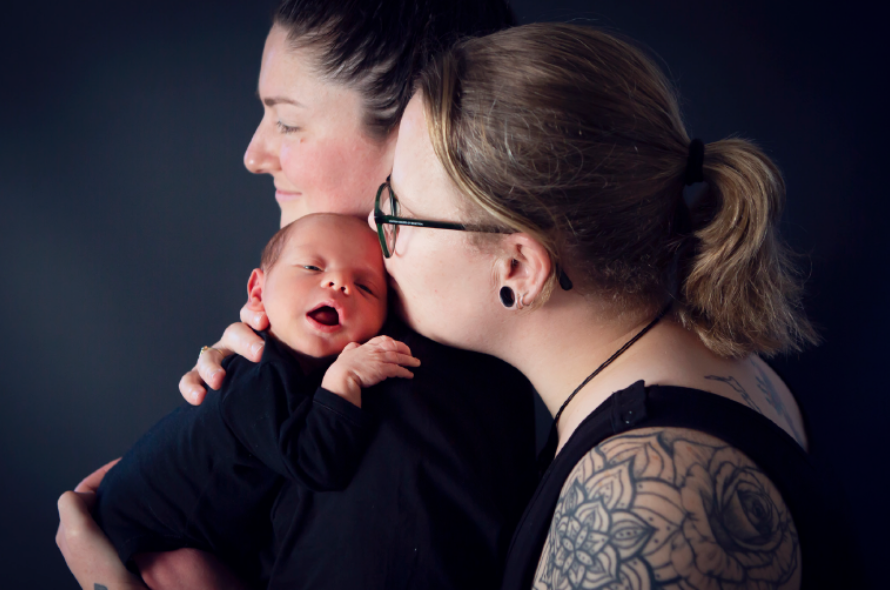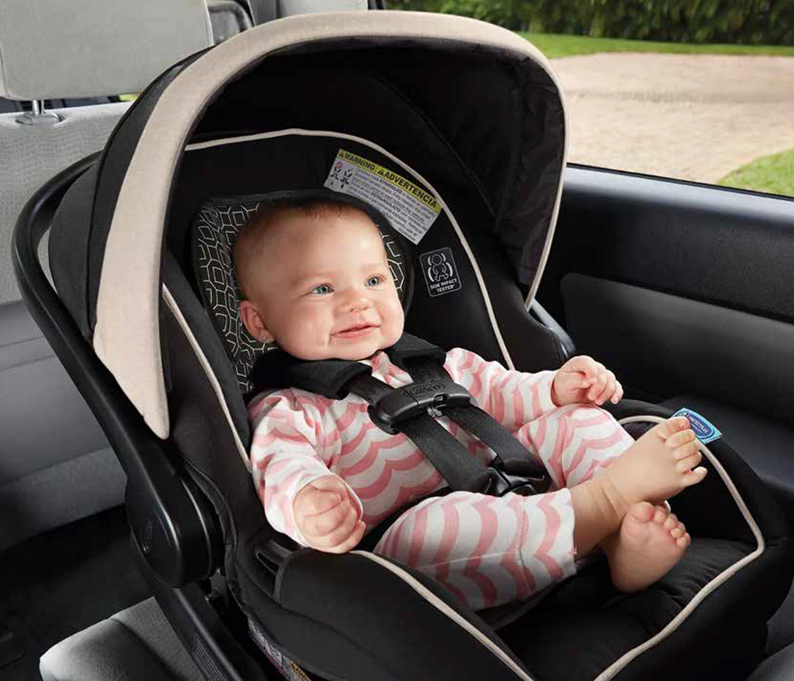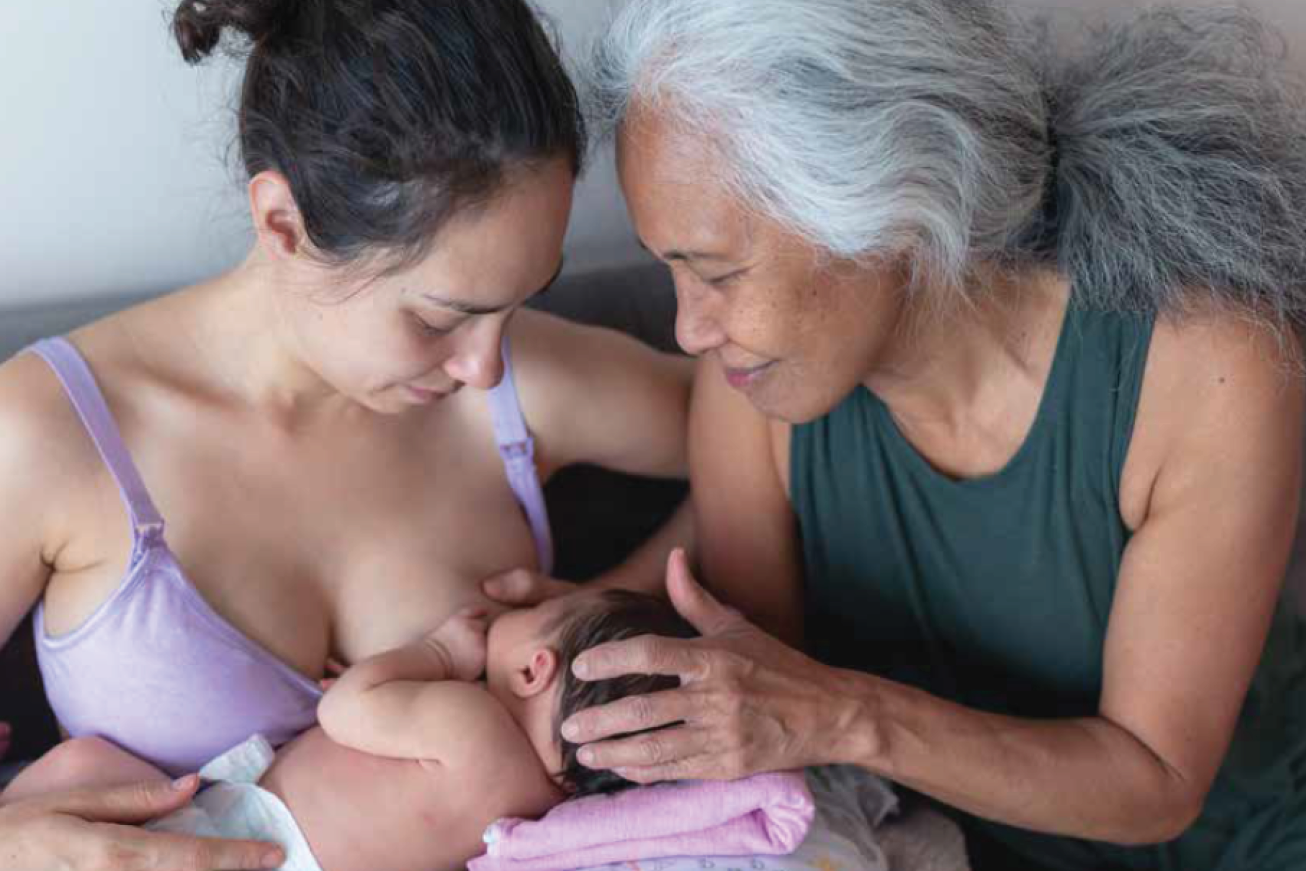
Congratulations, you’re pregnant!
For most women this is wonderful news – but, after the initial euphoria, a bit of panic can set in as reality hits home. What now? Do I need a midwife? How do I find one? What on earth is an LMC? Home birth or hospital birth?
Every single day, midwives welcome around 168 new babies into the world in New Zealand. Some pregnancies are planned, some are a big surprise, but no matter where you’ve decided you’d like your baby born, a qualified care professional will be there to care for you and your baby.
When you find out you are pregnant, you will need to choose who’s going to look after you as early as possible. It’s important that you feel comfortable with and trust the person who will care for you during your pregnancy and when you are having your baby.
Your midwife or specialist will be with you throughout your pregnancy. They will check baby’s growth, position and heartbeat, and take your blood pressure and arrange for you to have blood and urine tests. They will also make sure to offer screening tests and scans to check that both you and your baby are developing well. If you decide to have these tests and scans, your midwife will arrange them for you and then explain your results.
Your midwife will also explain how often you will need to be seen during your pregnancy. These visits may be able to take place in your home, at a maternity clinic, on the marae or in a hospital.
Most women in New Zealand choose a midwife but you may wish to be under the care of a specialist doctor – an obstetrician. In some places a general practitioner (a GP) who has been specially trained to care for pregnant women may be available. This professional is called your Lead Maternity Carer (LMC) and they will look after you while you are pregnant, during labour and birth, and for the first few weeks after your baby is born.
If there are any concerns about you or your baby, specialist care will be provided if you need it at any stage, no matter who your LMC is. Specialist care is usually provided through your local hospital, and in this case it’s free.
Midwifery care is free to all women who are residents of New Zealand.
What to expect from your midwife
The midwife you choose to care for you will be responsible for your care throughout your pregnancy, labour and birth, and will continue to look after you and your baby until around six weeks after the birth. They (or the midwife they use as a backup) will be available 24 hours a day, seven days a week. They will provide you with care and information about the choices you can make. Your midwife will:
- develop a plan with you for your care, including your labour and birth
- talk to you about staying healthy during the pregnancy
- be with you during your labour and birth
- refer you or your baby to specialist support if needed. You might need to be referred for a consultation to a primary care provider or a specialist. If necessary you may be transferred to a specialist for all or part of your care if a condition affects your entire pregnancy or labour. This will involve a three-way conversation between you, the specialist and the midwife
- visit you (or arrange for you to be visited) at the hospital and in your home at least seven times after your baby is born
- refer you to your chosen Well Child Tamariki Ora provider after your baby arrives
- help you to enrol your baby at a general practice for doctor and practice nurse services.
Safe to practise
All midwives who work in New Zealand need to hold an annual practising certificate. They are issued with a card they usually carry with them. Your midwife should show you her practising certificate card. If she does not, ask to see it – any conditions on her practice will be listed on the reverse. You can also search the Midwifery Council online register. This is the most up-to-date way to check a midwife’s current practising status.
So – how do you find a midwife?
- Ask around – Talk to your friends and family/whānau. Most mums are happy to pass on the contact details for their midwife if they were happy with the maternity care they received.
- Talk to your GP – Your GP will be able to discuss your options for maternity care and give you the contact details of midwives in your area.
- Contact the New Zealand College of Midwives – The College manages a useful website (findyourmidwife.co.nz) which helps to locate midwives in your area.
- Call the Mum2Be helpline 0800 Mum2BE (0800 686 223) – This number is operated by the Ministry of Health. All you have to do is call and leave your details and someone from the Ministry will send you a list of midwives in your area.
- Contact Nga Maia – This is a national organisation supporting Māori in pregnancy and childbirth and they can supply contact details for Māori midwives.
- Contact Home Birth Aotearoa – This organisation represents the many district home birth associations. Its website lists contact details for home birth midwives.
- Get in touch with your local hospital maternity unit – Your local maternity unit may be able to give you contact details for midwives in your area. DHB maternity units can also provide maternity care but they will only take you on if you can’t find a midwife.
Birth wishlist/plan
As part of planning for your care, your midwife will help make a birth wishlist or plan with you. The plan describes your own personal hopes and wishes for the labour and birth. It’s also useful if your midwife can’t be with you during your labour and birth for any reason, as the backup midwife will know what your wishes are. Some of the things that will go in your birth plan include:
- where you want to give birth – at home, in a birthing centre or in hospital
- who you want to be with you during the birth
- how you would like your place of birth to be set up – you might want things to relax you like special music and lighting what pain relief you would like if needed, such as acupressure, gas and air, pethidine, morphine or fentanyl injection, or an epidural
- what you would like to do with the whenua/afterbirth.
Sometimes things don’t go to plan – babies have their own ideas of how and when they will arrive! If there are complications during labour or birth your midwife will be making sure that you and your baby are safe first of all. Some women like to talk about such moments beforehand – others prefer to wait and see what happens at the time.
Know your rights
In New Zealand, by law, you have rights to:
- professional care from skilled staff
- be treated with respect, including respect for your culture, values, beliefs, customs, privacy and confidentiality
- know how your information is stored and used, and who it will be shared with
- view any information held about you and to correct it if necessary
- know about the services that your midwife or specialist doctor provides
- have everything you need to know carefully explained, and be able to ask any questions you need so that you can make informed decisions about all the care for you and your baby
- refuse any care offered to you (and to change your mind at any time)
- have someone with you for support
- complain about the treatment you receive.
If you have any questions or concerns about your health care, the information you are asked for or your privacy, you should talk to your midwife or specialist doctor.
Questions for your midwife
Finding the right person to care for you and your baby when you are pregnant is vital – after all, you are trusting them with not only your care but the care of your baby as well. Most women find it is helpful to have the same midwife throughout their pregnancy, during the birth and when baby is born – although you can change the person who is looking after you at any time. Here are some questions you can ask your midwife to help you make the right choice.
- Do you have a current practising certificate?
- How many births have you attended?
- Are you practising under any conditions (eg under supervision, practice type, prescribing)?
- What is your philosophy about birth – things like your attitudes to pain relief, home births, antenatal tests and ultrasounds (scans)?
- What is the range of services I can expect – how many antenatal and postnatal visits?
- Who do you work in co-operation with – what backup do you have?
- What choice will I have in selecting these alternative providers if you aren’t available?
If your LMC is not a midwife, what options do you have for midwifery care in labour and after the birth of the baby?
When you are in labour
- Will you assess me at my home?
- Will you be there for the whole of my labour?
- How can you be contacted?
- What are the backup arrangements if you are on holiday or not available?
- What arrangements do you have for backup in labour?
- When would you transfer my care?
How busy is the midwife?
The New Zealand College of Midwives recommends a caseload of 40–50 births per year. What is your caseload? And a few more things…
- What is your intervention rate? What percentage of the women you care for have inductions, epidurals, episiotomies etc?
- What will happen if I require specialist care?
- If I chose to have a homebirth, what equipment will you provide for emergency use?
Your guide to maternity language
- Lead Maternity Carer (LMC) – refers to the person (midwife, obstetrician or GP with Diploma in Obstetrics) who provides maternity care for women.
- Obstetrician – this is a specialist doctor concerned with pregnancy and childbirth.
- Perinatal period – this generally covers the time from conception through to when your child turns two.
- GP – is the abbreviation for General Practitioner or family doctor.
- Medical pain relief options during labour and birth – these include gas and air (a mixture of nitrous oxide and oxygen sometimes called Entonox), pethidine, morphine or fentanyl injection, or an epidural.
- Natural Pain relief options – these include acupressure, acupuncture, water, relaxation mantras, breathing, massage, etc.
- Pregnancy screening tests – you will be offered a range of tests during pregnancy which can include blood tests and screening for Down syndrome and other conditions.
- Ultrasound – also known as sonography, ultrasound is used to check up on fetal development and can also detect problems in liver, heart, kidney or abdomen – as well as establish more accurate due dates.
- Birth plan – this is a guide you work on with your LMC or midwife to guide and inform your carers about your wishes.
- DHB – District Health Boards are responsible for providing health and disability services and will fund delivery wards and maternity care facilities at hospitals throughout the country.
- NICU – Neonatal Intensive Care Units provide specialist care for babies who are born prematurely or who have serious health problems.
- Well Child Tamariki Ora programme – a free service provided by the Ministry of Health to all Kiwi kids from birth to five years. Well Child providers include Plunket, marae health clinics and other social and health services.
Prepared with information from the College of Midwives, the Midwifery Council, the Ministry of Health and Plunket.






